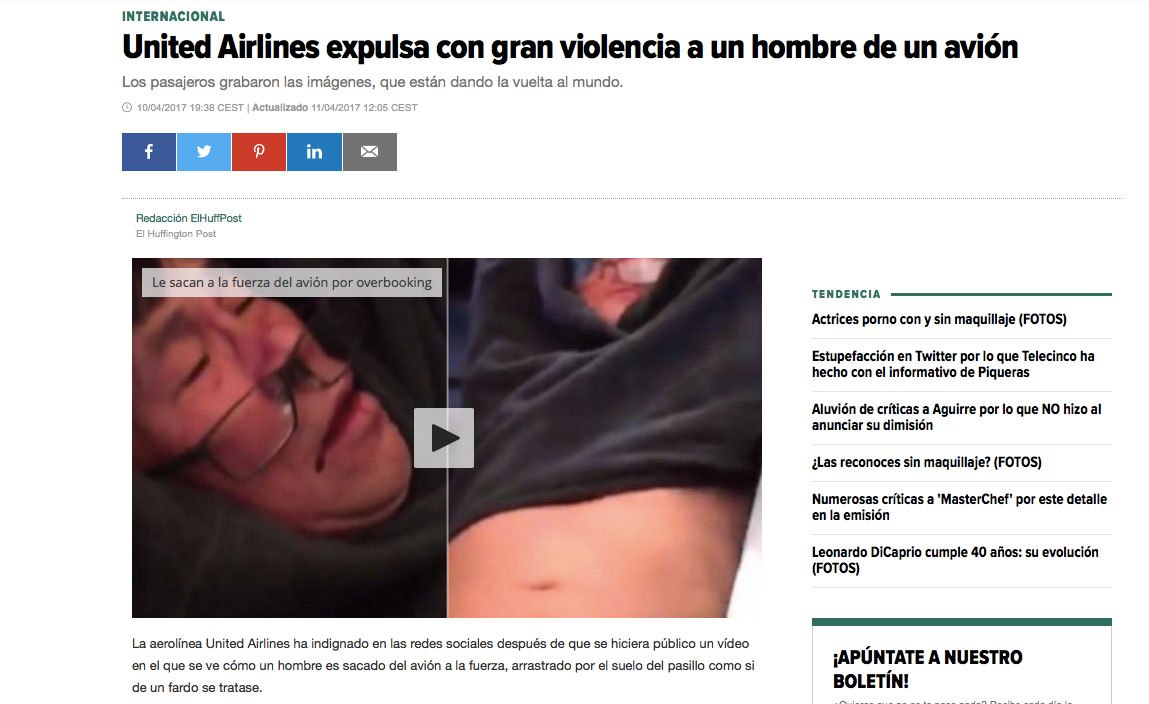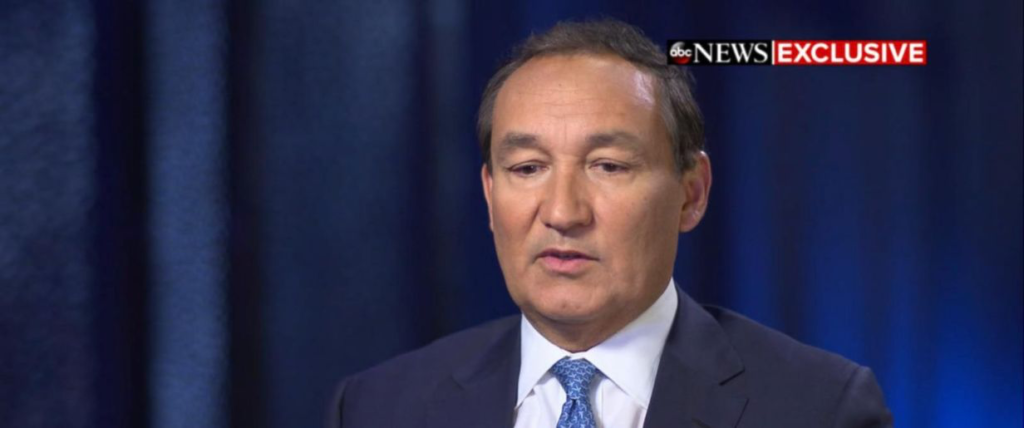
Airlines were the gold standard in crisis communication. Despite being one of the safest modes of transportation in the world, the visibility of a plane crash generates extensive coverage and almost always involves loss of life. That’s why offering immediate responses, showing sensitivity, empathy, and control was one of the priorities of communication in the event of an incident. In fact, the most robust manuals, which are updated more frequently and put to the test in simulations once or twice a year, are from airlines. In fact, when dealing with a missing plane, a hostage situation, an accident, etc., there are many more doubts than certainties. Even so, it is necessary to communicate to contain the uncertainty of passengers’ families, as well as to show that responsible action is being taken.
But United Airlines demonstrated not only to ignore the basic rules, but to be capable of creating and worsening a crisis on Sunday, April 9, 2017. Its own employees originated the scandal by dragging a passenger who refused to give up his seat so that another crew could reach the airport in Chicago with destination to Kentucky, on an oversold flight that had already been boarded. The images are memorable: the police hit and drag the already injured passenger out of his seat, amid screams from other passengers.
The poor handling of the situation, which was documented and shared on social media immediately, exposed the excessive violence used against a passenger who was not a threat. In this case, there was no doubt: it was a crisis from the very beginning.
What would have been the “manual response”?
- Offer an immediate apology to the passenger -regardless of whether he was uncooperative-, as no one deserves to be punched and dragged for refusing to give up his seat. This apology should be sincere and issued by the CEO, both in a statement/video and on social media.
- Ensure that an investigation would be conducted, in conjunction with air transport authorities, to determine how the error was made and to assign responsibilities, especially to prevent it from happening again.
- Offering an extraordinary compensation to the beaten passenger – and to the other 3 people who were taken off the plane – and explaining that there was an urgency for the crew to reach their next flight, but completely condemning the way the measure was taken.
- Ask your employees to always put themselves in the shoes of the passengers and treat them as they would like to be treated (even in very tense situations).
- To establish a new policy that ensures that, in cases of urgency, decisions will be made before boarding a flight and that establishes what compensation will be given to those who cooperate.
But United CEO, Oscar Muñoz, committed two unforgivable sins in a crisis: arrogance and insensitivity. His first two statements offered a superficial apology to all passengers for having to rebook their flights, without specifically mentioning the injured customer. Even worse, in the letter he sent to employees, he seemed to blame the passenger by calling him “disruptive and belligerent.” This undoubtedly added fuel to the fire.
Faced with the stock market drop and pressure from reactions on social media and passenger cancellations, Oscar Muñoz is forced to give a television interview, but four days after the incident. In it, he apparently changes his position and finally acknowledges that the United employees’ reaction was incorrect. However, when asked directly, “Do you think the passenger was at fault?”, the response is hesitant: “…(pause)… No. No one deserves to be treated like that.” This interview is a missed opportunity: Muñoz does not come across as sincere or truly remorseful, and he never sends a direct message to the affected passenger. But above all, it is too late.

The mistreated passenger, meanwhile, announced that he will file a million-dollar lawsuit. (On the other hand, the media (perhaps thanks to a leak) uncovered his unsavory past: a doctor who has faced almost 100 complaints for prescription and drug trafficking, sexual favors, among other crimes). However, none of this justifies the treatment he received.
Finally, on April 24th, it was announced that Oscar Muñoz would not automatically become Chairman of the Board of United as planned. This is the latest sacrifice the company hopes will appease customers, aviation authorities, and the markets. Muñoz, who has been president of the company for less than a year and a half – and already had a heart transplant while in office – was hired in September 2015 to replace the previous CEO, who was fired due to… another crisis.
United has shown that the worst crisis is the one from which nothing is learned.